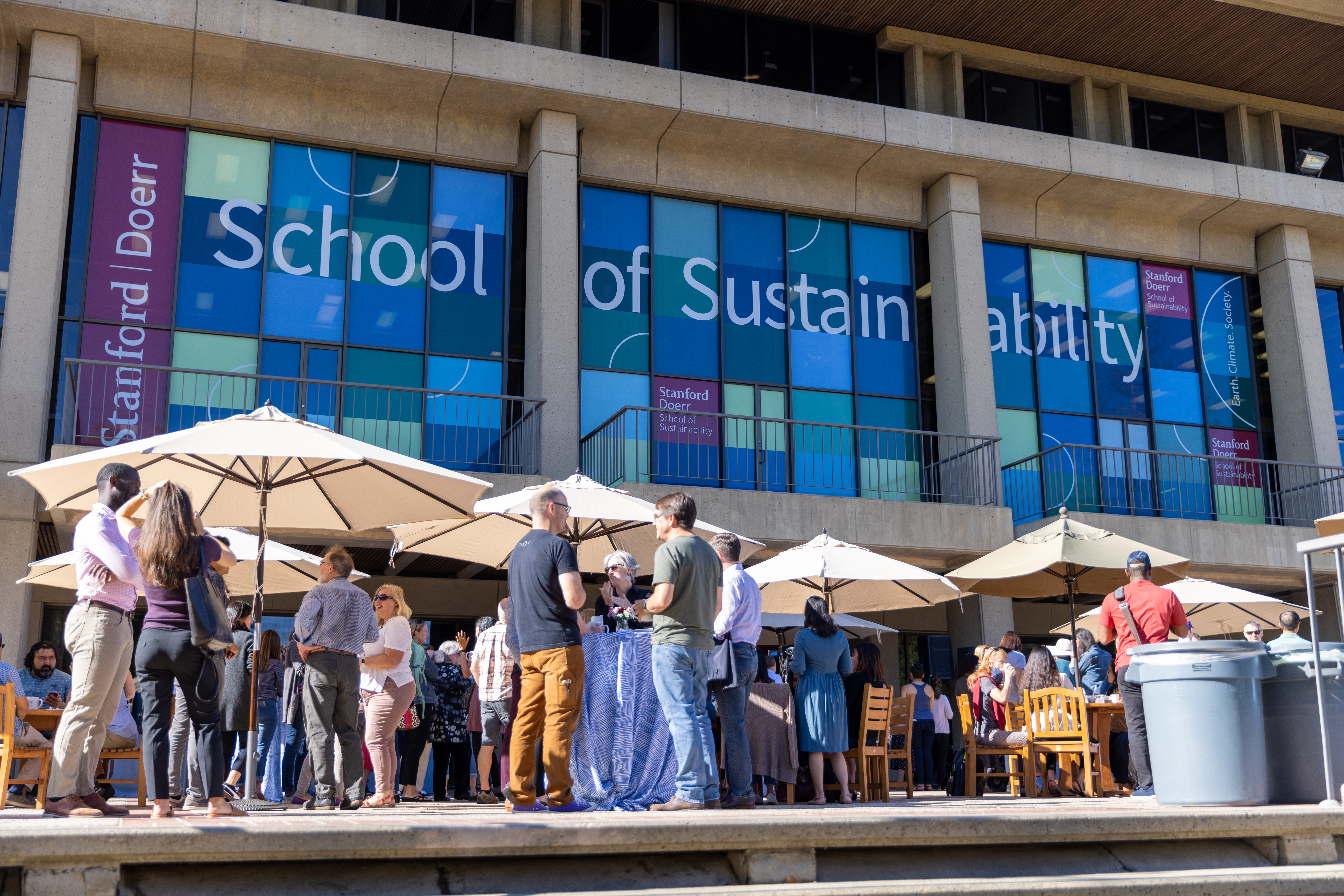The Doerr School of Sustainability announced a 22-member advisory council on Tuesday, composed of researchers, billionaires and a single Stanford student.
According to the announcement, the advisory council will be co-chaired by John Doerr — the venture capitalist who donated $1.1 billion to the school in 2022 — and former University president John Hennessy. It will meet twice per year to guide which direction the school should take in developing new programs, initiatives and partnerships.
“The advisory council will work closely with Dean Majumdar and the school’s leadership team to set our school on a course to accelerate solutions to our biggest climate challenges, uncover new knowledge about our planet, and educate the next generation of sustainability leaders,” said University president Marc Tessier-Lavigne in the announcement.
The council will hold its first meeting in June to discuss global engagement and how to scale solutions through the Sustainability Accelerator.
Joining Doerr and Hennessy are high-profile billionaires from the Stanford community — notably, Bill Gates who donated at least $6 million for the construction of the Gates Computer Science Building, and Tom Steyer who founded the University’s TomKat Center for Sustainable Energy and the Steyer-Taylor Center for Energy Policy and Finance.
In addition, the board includes other high net-worth individuals with backgrounds outside of the sustainability sector, such as Ann Doerr (Benificus Foundation), Angela Filo (Yellow Chair Foundation), Laurene Powell Jobs (Emerson Collective and XQ Institute) and Eric Yuan (Zoom), whose net worths are all approximated at more than $1 billion, according to Forbes.
Of the council’s 22 members, at least ten are considered billionaires with many being major Stanford donors. The council also includes two researchers whose work is related to sustainability: Sandra Begay, a researcher at Sandia National Laboratories, and Yi Wang, professor of Energy and Environmental Policy from the University of Chinese Academy of Science.
Anela Arifi, a third-year Ph.D. student in the Emmett Interdisciplinary Program in Environment and Resources (E-IPER) is the only Stanford student member of the 22-person council. Arifi researches ways to extract energy from waste biomass, and worked at the World Bank before coming to Stanford. Arifi was also one of four speakers at the opening ceremony of the school in September.
The board is set to address how the Sustainability Accelerator will align with the school’s controversial first Flagship Destination of greenhouse gas emissions removal — the first of multiple focus areas. The Accelerator supports faculty-led research projects with grants from $20,000 to $1,000,000 and industry partnerships to scale sustainable technologies from the research phase to market solutions.
The announcement of the school’s new Flagship Destination indicated that the Accelerator would primarily support research topics concerning greenhouse gas removal. However, the Accelerator’s new director, Yi Cui, expressed uncertainty about the extent to which the Accelerator would prioritize the Flagship Destination.
While the announcement didn’t say how much of a priority greenhouse gas removal will continue to be, it did note the topics that will be discussed at the advisory council’s inaugural June meeting. Among them, the members will explore “opportunities for scalable solutions through the Sustainability Accelerator,” indicating that it could play a deciding role to determine the extent to which the Accelerator will weigh projects aligning with the Flagship Destination.
Beyond declaring its focus on greenhouse gas removal research, the sustainability school’s leadership has consistently underscored the need for the school to collaborate with partners beyond the U.S. to address issues like climate change mitigation and adaptation. At a fireside chat in October, Arun Majumdar, dean of the Doerr School of Sustainability, said that international partnerships will help the school identify “what the real issues are on the ground, not what we perceive in Silicon Valley.”
Including perspectives from the rest of the globe, the board includes the leaders of Chinese conglomerate Tencent, Indian conglomerate Tata Sons and Indian engineering firm Godrej & Boyce, as well as Wang. However, the committee does not include members from Africa or South America.
“Members of this advisory council will bring deep and diverse expertise and experiences in shaping our approaches and thinking with a global perspective,” said Majumdar. “I look forward to working alongside this group of incredible leaders to help develop scholarship, education, and scalable solutions.”
